 And therefore think him as a serpent's egg
And therefore think him as a serpent's eggWhich hatch'd, would, as his kind grow mischievous;
And kill him in the shell.
Brutus in Shakespeare's Julius Caesar
"Anybody who makes the slightest effort can see what is waiting in the future. It's like a serpent's egg: through the thin membranes, you can clearly discern the already perfect reptile."
From Ingmar Bergman's film A Serpent's Egg
It may indeed to be too late to kill the Bush administration in its shell, for what it has unleashed on the world is evil personified. Today's report on torture that has been the practice of this administration since that fateful day in September of 2001 is a horrifying revelation of what many of us have suspected all along. Not only can this administration not be trusted, but it is also perpetrating some of the most vile acts in our name and with our money.
Here's a nice summary from Obsidian Wings:
Here's a nice summary from Obsidian Wings:
The techniques in question are repugnant. But in many ways, the administration's disregard for the law is worse. When your policies violate treaties you have signed and laws that are on the books, you are not supposed to come up with some clever way of explaining that appearances to the contrary, what you're doing is not illegal at all. You're supposed to stop doing it. When Congress decides to pass a law banning "cruel, inhuman and degrading" treatment, you are supposed to stop engaging in such treatment, not to redefine "cruel, inhuman and degrading" so that it doesn't apply to anything you want to do.
If the stories of Blackwater's unchecked action in Iraq aren't enough to make you wonder what ever happened to the rule of law, then I'm not sure there is anything that remains that this administration could do to shock you.
Following are several more telling portions from the article that appears in today's NYTimes:
Secret U.S. Endorsement of Severe Interrogations
"The classified opinions, never previously disclosed, are a hidden legacy of President Bush's second term and Mr. Gonzales's tenure at the Justice Department, where he moved quickly to align it with the White House after a 2004 rebellion by staff lawyers that had thrown policies on surveillance and detention into turmoil."
Scott Shane, David Johnston and James Risen, NYTimes, October 4, 2007
"The interrogation opinions were signed by Steven G. Bradbury, who since 2005 has headed the elite Office of Legal Counsel at the Justice Department. He has become a frequent public defender of the National Security Agency's domestic surveillance program and detention policies at Congressional hearings and press briefings, a role that some legal scholars say is at odds with the office's tradition of avoiding political advocacy."
Scott Shane, David Johnston and James Risen, NYTimes, October 4, 2007
"The debate over how terrorism suspects should be held and questioned began shortly after the Sept. 11, 2001, attacks, when the Bush administration adopted secret detention and coercive interrogation, both practices the United States had previously denounced when used by other countries. It adopted the new measures without public debate or Congressional vote, choosing to rely instead on the confidential legal advice of a handful of appointees."
Scott Shane, David Johnston and James Risen, NYTimes, October 4, 2007
"The office was designed to insulate against any need to be an advocate," said Mr. Kmiec, now a conservative scholar at Pepperdine University law school. But at times in recent years, Mr. Kmiec said, the office, headed by William H. Rehnquist and Antonin Scalia before they served on the Supreme Court, "lost its ability to say no."
"The approach changed dramatically with opinions on the war on terror. The office became an advocate for the president's policies."
Douglas W. Kmiec, who headed the Office of Legal Counsel under President Ronald Reagan and the first President George Bush
"Never in history had the United States authorized such tactics. While President Bush and C.I.A. officials would later insist that the harsh measures produced crucial intelligence, many veteran interrogators, psychologists and other experts say that less coercive methods are equally or more effective."
Scott Shane, David Johnston and James Risen, NYTimes, October 4, 2007
"For government lawyers, the national security issues they were deciding were like working with nuclear waste — extremely hazardous to their health. If you give the administration what it wants, you'll lose credibility in the academic community. But if you hold back, you'll be vilified by conservatives and the administration."
Scott Horton, an attorney affiliated with Human Rights First
"We are likely to hear the words: 'If we don't do this, people will die.' It takes far more than a sharp legal mind to say 'no' when it matters most. It takes moral character. It takes an understanding that in the long run, intelligence under law is the only sustainable intelligence in this country."
James B. Comey, Deputy Attorney General (2003 - 2005)
"In a frequent practice, Mr. Bush attached a statement to the new law when he signed it, declaring his authority to set aside the restrictions if they interfered with his constitutional powers. At the same time, though, the administration responded to pressure from Mr. McCain and other lawmakers by reviewing interrogation policy and giving up several C.I.A. techniques."
Scott Shane, David Johnston, and James Risen, NYTimes, October 4, 2007
"I know from the military that if you tell someone they can do a little of this for the country's good, some people will do a lot of it for the country's better," Mr. Hutson said. Like other military lawyers, he also fears that official American acceptance of such treatment could endanger Americans in the future.
John D. Hutson, who served as the Navy's top lawyer from 1997 to 2000, said he believed that the existence of legal opinions justifying abusive treatment is pernicious, potentially blurring the rules for Americans handling prisoners.
John D. Hutson, who served as the Navy's top lawyer from 1997 to 2000, said he believed that the existence of legal opinions justifying abusive treatment is pernicious, potentially blurring the rules for Americans handling prisoners.
"The problem is, once you've got a legal opinion that says such a technique is O.K., what happens when one of our people is captured and they do it to him? How do we protest then?"
[Indeed, on what ground do we have to stand?]
[Indeed, on what ground do we have to stand?]
John D. Hutson

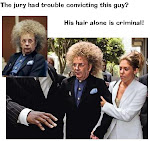
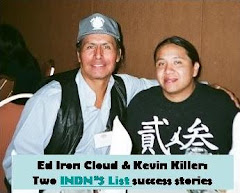











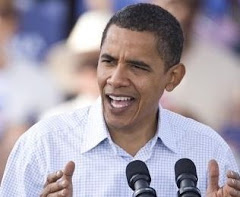


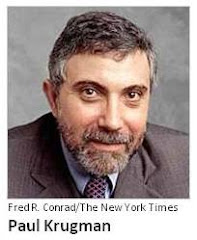









































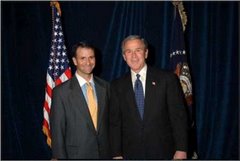





No comments:
Post a Comment